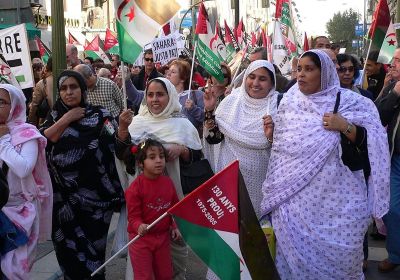
-
 The crackdown by Moroccan occupation forces on the protest camp at Gdeim Izik on November 8 may have brought more attention to the plight of Western Sahara than was intended. The 20,000-strong camp at Gdeim Izik, 15 km from the Western Saharan capital, El Aaiun, was established on October 9 to protest against the discrimination and oppression experienced by Saharawi people living under Moroccan occupation.
The crackdown by Moroccan occupation forces on the protest camp at Gdeim Izik on November 8 may have brought more attention to the plight of Western Sahara than was intended. The 20,000-strong camp at Gdeim Izik, 15 km from the Western Saharan capital, El Aaiun, was established on October 9 to protest against the discrimination and oppression experienced by Saharawi people living under Moroccan occupation. -
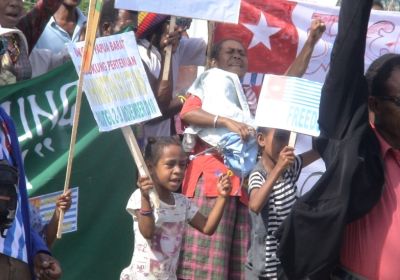 Leaked military documents have confirmed that Indonesia’s elite special forces unit Kopassus routinely engages in “murder [and] abduction”. The documents also show Kopassus officially defines civilian dissidents as its “enemy” in its operations in West Papua. The documents, posted by journalist Allan Nairn at Allannairn.com on November 9, identify Indonesia’s primary enemies in West Papua as unarmed civilians involved in the independence movement.
Leaked military documents have confirmed that Indonesia’s elite special forces unit Kopassus routinely engages in “murder [and] abduction”. The documents also show Kopassus officially defines civilian dissidents as its “enemy” in its operations in West Papua. The documents, posted by journalist Allan Nairn at Allannairn.com on November 9, identify Indonesia’s primary enemies in West Papua as unarmed civilians involved in the independence movement. -
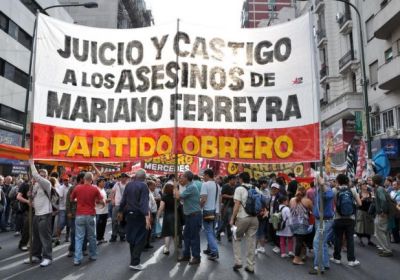 Twenty-three-year-old Mariano Ferreira, a Workers Party (PO) activist, was shot dead in Buenos Aires on October 8 when a mob violently attacked protesting railway workers. The protesters, all of them labour hire workers, were demanding their reinstatement after being sacked. The attack was similar those against other workers in comparable circumstances who have demanded rights denied by the bosses. Often the bosses’ have acted with local union support.
Twenty-three-year-old Mariano Ferreira, a Workers Party (PO) activist, was shot dead in Buenos Aires on October 8 when a mob violently attacked protesting railway workers. The protesters, all of them labour hire workers, were demanding their reinstatement after being sacked. The attack was similar those against other workers in comparable circumstances who have demanded rights denied by the bosses. Often the bosses’ have acted with local union support. -
 An unprecedented high abstention rate of 39% marked elections for municipal and regional authorities for 13 region governors and 325 mayors in Greece. The second round of the elections took place on November 14. The regions are newly created local authorities. Their formation is closely connected to the austerity program imposed on Greece by the International Monetary Fund (IMF) and European Union (EU). The new bodies conform to the “Kallikratis” plan, a hasty reform of the administrative structure of the country.
An unprecedented high abstention rate of 39% marked elections for municipal and regional authorities for 13 region governors and 325 mayors in Greece. The second round of the elections took place on November 14. The regions are newly created local authorities. Their formation is closely connected to the austerity program imposed on Greece by the International Monetary Fund (IMF) and European Union (EU). The new bodies conform to the “Kallikratis” plan, a hasty reform of the administrative structure of the country. -
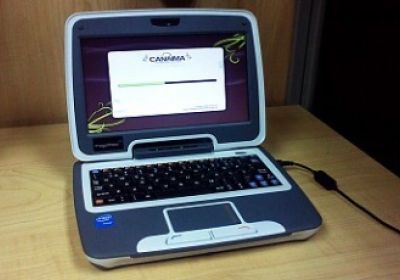 The Venezuelan government has begun distributing the first of 350,000 portable Canaima laptop computers to be provided to public elementary school children by the end of the year, Venezuelanalysis.com said on November 17. Education minister Jennifer Gil said: “The Canaima Plan is a milestone and a technological innovation. It allows us to keep deepening our integral and massive education system that does not involve just students, but the entire family environment, parents, representatives and teachers.”
The Venezuelan government has begun distributing the first of 350,000 portable Canaima laptop computers to be provided to public elementary school children by the end of the year, Venezuelanalysis.com said on November 17. Education minister Jennifer Gil said: “The Canaima Plan is a milestone and a technological innovation. It allows us to keep deepening our integral and massive education system that does not involve just students, but the entire family environment, parents, representatives and teachers.” -
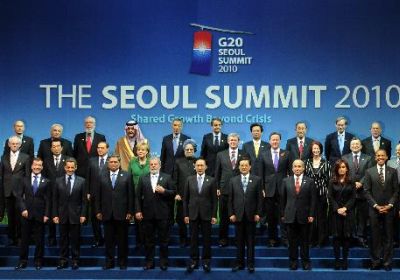
“The Group of 20 countries [which met in Seoul over November 11-13] were supposed to have stamped out the financial market abuses at the heart of the global crisis but little seems to have changed since their last summit, analysts say. “Hopes for reform after the market chicanery that brought down a series of ‘too-big-to-fail’ banks and sparked the worst slump since the 1930s have faded with the return of the ‘get rich quick’ mentality, according to analysts.
-
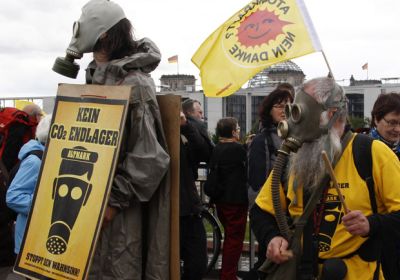 Germany’s centre-right government is facing what many have dubbed a “hot autumn” of protests, as conflict over a range of social, political and environmental issues come to a head across the country. As the governments of Europe attempt to offload the costs of the financial crisis onto working people, German Chancellor Angela Merkel has initiated a series of “austerity” measures aimed to undermine Germany’s social welfare system.
Germany’s centre-right government is facing what many have dubbed a “hot autumn” of protests, as conflict over a range of social, political and environmental issues come to a head across the country. As the governments of Europe attempt to offload the costs of the financial crisis onto working people, German Chancellor Angela Merkel has initiated a series of “austerity” measures aimed to undermine Germany’s social welfare system. -
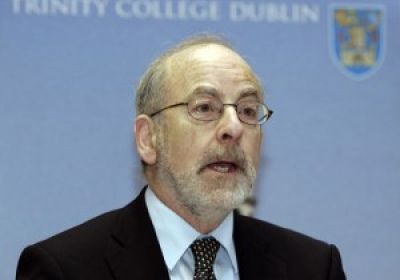 An “army” of European Union (EU) and International Monetary Fund (IMF) officials arrived in Dublin on November 18 “seeking to foist a large loan on Ireland in a bid to prop up the country’s embattled banking sector and save the European currency”, the Morning Star said that day. Irish finance minister Brian Lenihan told MPs that Ireland, the EU and the IMF were exploring the prospect of forming “a contingency capital fund that would stand behind the banks”, the article said.
An “army” of European Union (EU) and International Monetary Fund (IMF) officials arrived in Dublin on November 18 “seeking to foist a large loan on Ireland in a bid to prop up the country’s embattled banking sector and save the European currency”, the Morning Star said that day. Irish finance minister Brian Lenihan told MPs that Ireland, the EU and the IMF were exploring the prospect of forming “a contingency capital fund that would stand behind the banks”, the article said. -

President Nicolas Sarkozy enacted a new law on November 10 that increases the retirement age of French workers. The move came just days after more than a million workers and students mobilised across France against the law.
-
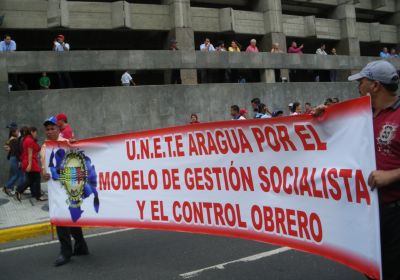
More than 5000 workers from across Venezuela marched to the Venezuelan National Assembly in Caracas on November 9. The rally was organised by the National Workers’ Union (UNT).
-
More than 50,000 German anti-nuclear protesters defied 17,000 police over the weekend of November 6 and 7and blockaded a train carrying spent nuclear fuel rods from France to Germany. On November 8, the fuel rods finally reached the small north German village of Dannenberg. From there, they were trucked a further 20 kilometres to an interim nuclear storage facility in the town of Gorleben. Anti-nuclear activists drove more than 600 tractors, blockading roads and the railway in the largest ever demonstration over the transportation of spent nuclear fuel rods in Germany.
-
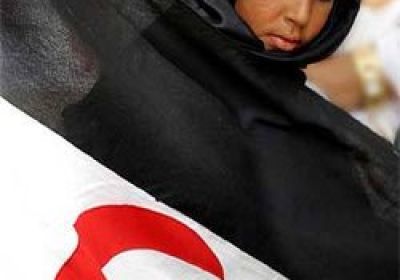 Cuba and Venezuela condemned on November 11 the repression by Moroccan forces against Sahrawi people in El-Aaiun, the Venezuelan News Agency (AVN) said that day. Cuban and Venezuela’s ambassadors to Algeria, Hector Michel Mujica and Eumelio Caballero, condemned the attack by Morrocco, which is illegally occupying Western Sahara. The ambassadors are also the accredited diplomatic representatives of their nations to the Sahrawi Arab Democratic Republic (SADR), the independence of which is being denied by Morocco.
Cuba and Venezuela condemned on November 11 the repression by Moroccan forces against Sahrawi people in El-Aaiun, the Venezuelan News Agency (AVN) said that day. Cuban and Venezuela’s ambassadors to Algeria, Hector Michel Mujica and Eumelio Caballero, condemned the attack by Morrocco, which is illegally occupying Western Sahara. The ambassadors are also the accredited diplomatic representatives of their nations to the Sahrawi Arab Democratic Republic (SADR), the independence of which is being denied by Morocco.